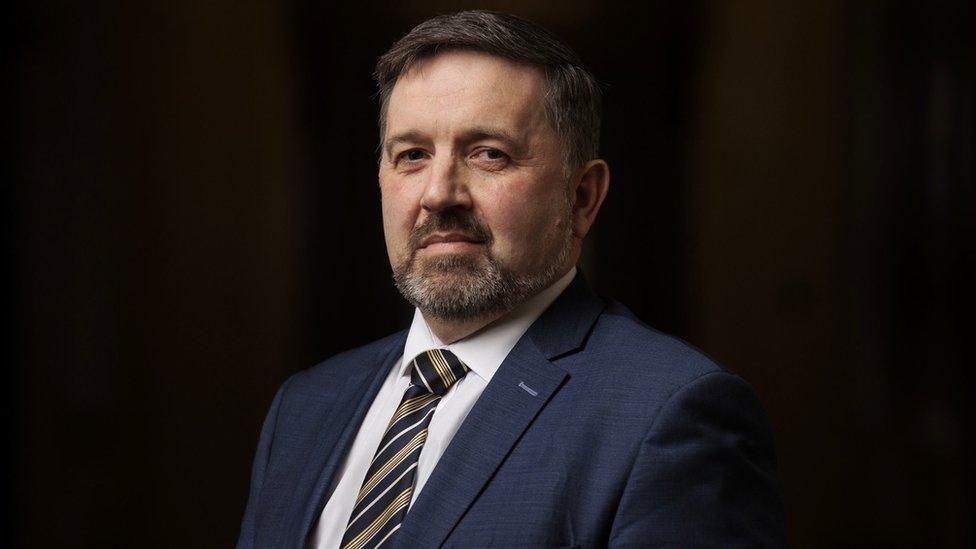Health minister role the 'political honour of my life' - Nesbitt
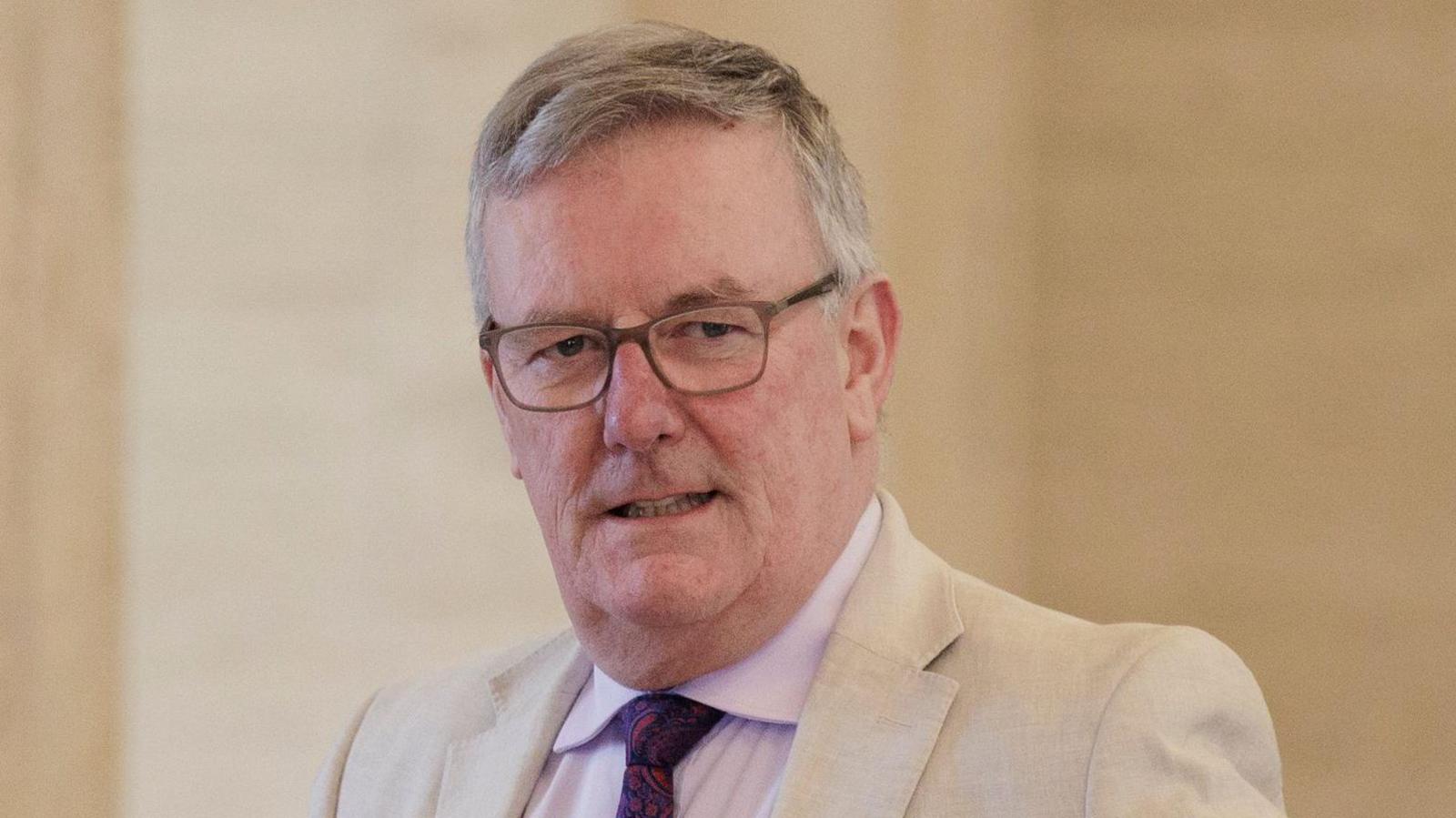
Mike Nesbitt is a former UUP leader
- Published
The Ulster Unionist Party's (UUP) Mike Nesbitt says becoming health minister is "the political honour" of his life.
Robin Swann announced in April that he would be stepping down from the role to stand in the UK general election.
He has been selected as the party's candidate in the South Antrim constituency.
Mr Nesbitt has been a UUP assembly member for Strangford since 2011 and was the party's leader from 2012 to 2017.
Speaking at a press conference on Wednesday, Mr Nesbitt said that while the role presents "the ultimate political challenge", he "would like to put a bit of hope back into discussions about the national health service".
"Whether it's a hospital porter or a consultant, these are all good jobs," he added.
"I want to respect them and I want to give them a bit of hope that the health service may be turning a corner."
Mr Nesbitt resigned as deputy chair of a Stormont committee after he admitted breaking lockdown rules in 2020.
"It was a very serious error of judgement on my part," he told BBC News NI.
"It is a stain on my record that I can't wash away."
He also described the role as "the ultimate political challenge", adding that he will not "shirk and walk away from big decisions no matter how controversial they may be over the next three years".
Earlier this month, Councillor Paul Michael quit the UUP after the party's decision to line up Mr Nesbitt to replace Mr Swann as Stormont health minister.
Mr Swann had previously insisted he could remain in the health minister role while campaigning for a seat at Westminster.
He was health minister throughout the Covid-19 pandemic and returned to the role once devolution was restored in February.
Opposed the budget
On Tuesday, The Northern Ireland Assembly passed its first budget in three years, despite several parties voting against the move.
Mr Swann had opposed the budget when it was agreed by other executive ministers in April.
Mr Aiken said the political parties needed to be in a position where they could look at the funding coming in from the June monitoring round.
He said he wanted more information on this and would be raising the matter at the Northern Ireland Assembly’s finance committee on Wednesday.
“The fact that somewhere between two hundred and three hundred extra million [pounds] is coming in within an extra 30 days and yet we are rushing through with a budget, I think that just says this whole system is completely flawed,” he told BBC Radio Ulster's Good Morning Ulster programme.
“Everybody should be getting locked in a room like they would do in a normal administration and thrash this out because we know there is an extra potentially quarter of a billion pounds there.”
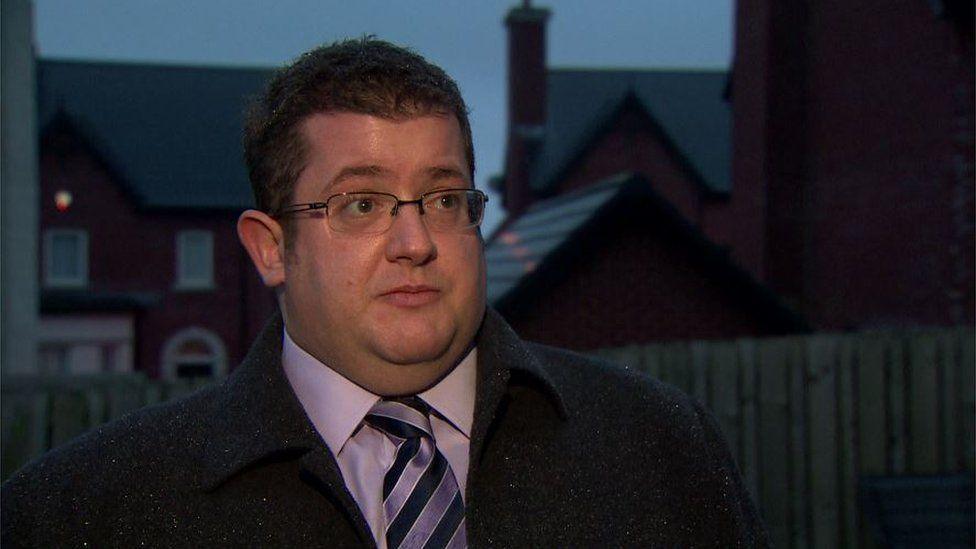
The BMA's Dr David Farren says the budget could signal the collapse of the health service
Meanwhile a senior doctor has said that the current health budget could mean “the collapse of the health service as we know it".
Dr David Farren, who is the chair of the British Medical Association’s consultants committee told BBC News NI that the public have no idea of the impact of the cuts.
"Local waiting lists are already the worst in the UK and the budget as it stands could lead to the complete collapse of hospital services," he said.
“We are already having cancellations of elective surgeries - what this could lead to is an inability to deliver urgent surgeries such as cancer surgery.
He said the additional pressure meant that the system would “overflow and hospitals not be able to cope”.
Waiting lists warning
Dr Farren said the message from the health trusts and the Department of Health were not empty threats and that he wants to believe the money will be found to avoid further cancellations.
He said if the current budget remains unchanged elected representatives need to explain to the public what this means in real terms.
“It means that people will not have free at the point of access health service that they need.”
Northern Ireland has the worst hospital waiting lists and is the worst performing health service in the UK, Dr Farren said, adding that this cut to funding will only exacerbate those issues.
- Published23 April 2024
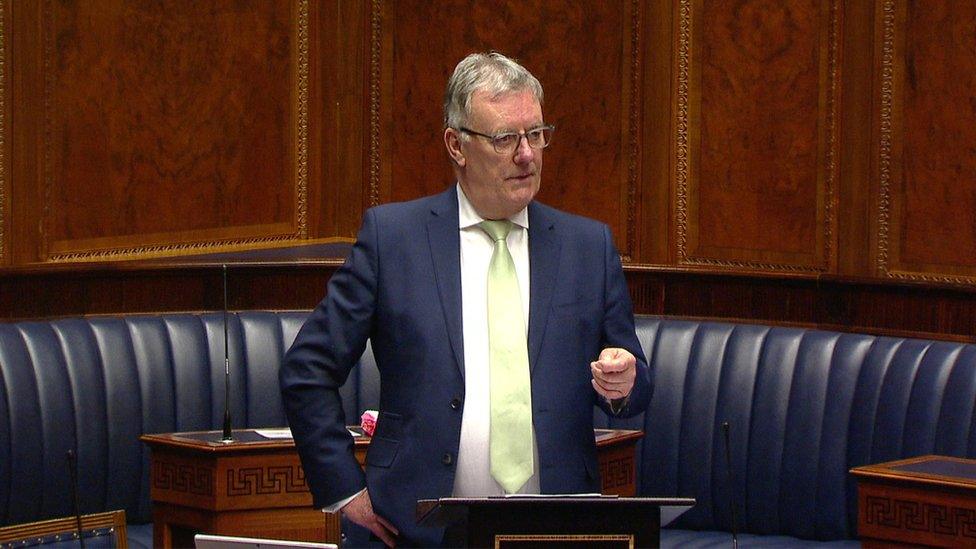
- Published21 May 2024
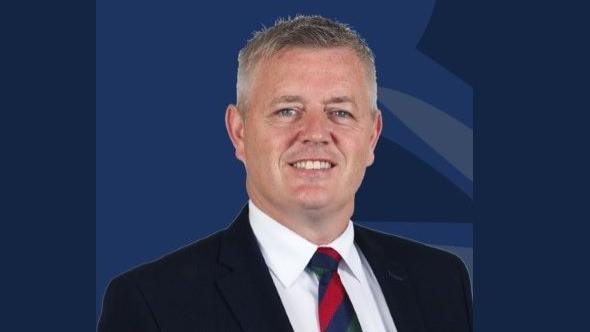
- Published21 April 2024
